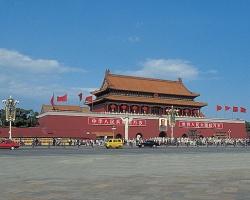It is 20 years since Ding Zilin stood by her gate and waited for her son. “What came were students with tattered clothes and dishevelled hair, shouting ‘they are killing people, they are shooting at people,'” she recalled.
“The more we watched, the more terrified and desperate we felt … At about 5 a.m., we saw a car with a flat wooden board on it and a child’s body on the board. When I saw the body of that child I felt my son’s fate was the same, and he would not come back again.”
Her son, Jiang Jielian, 17, was one of hundreds who died that day, shot dead by the People’s Liberation Army on the streets of Beijing. Some believe the death toll in the crackdown on the Tiananmen Square democracy protests stretches into thousands; but no one knows for sure, and Ding’s attempts to list the dead have resulted in two decades of harassment.
Security officials repeatedly have prevented her from marking her son’s death. “You killed my son and you’re stopping me going to commemorate him? You didn’t do enough?” was her incredulous comment about them to the Guardian earlier this year.
Today police again arrived to blockade her home amid a broad security clampdown. Other dissidents have been detained or invited on “holidays” by security officials this week. Plainclothes and uniformed officers have flooded Tiananmen Square. Popular online services, including Twitter and Flickr and bulletin boards, have been blocked. BBC broadcasts on the anniversary are blacked out, and pages of imported newspapers are cut out or glued together.




